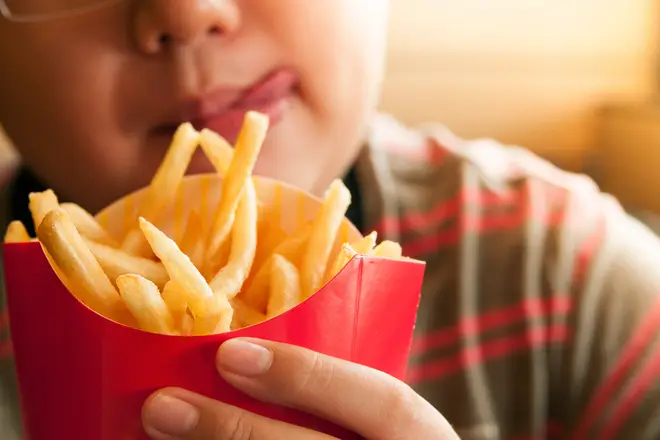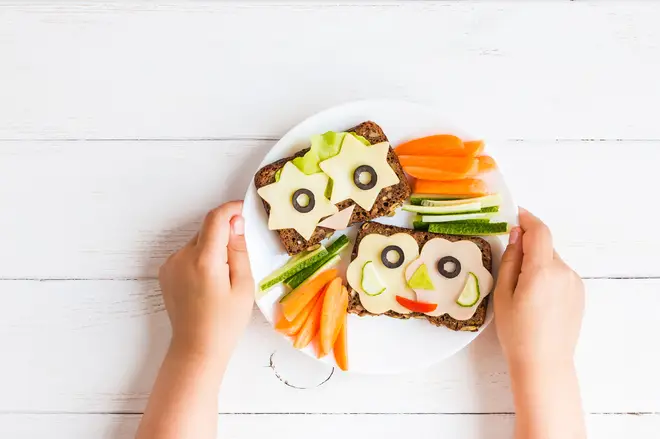NHS issues practical tips to encourage 'fussy eaters' after vitamin deficient boy, 17, goes blind
4 September 2019, 15:42 | Updated: 4 September 2019, 15:45

Whether your kids refuse to eat vegetables or turn their noses up at fruit salad, many parents are faced with fussy toddlers at dinner time.
Experts are now warning about the dangers of an unbalanced diet, after one boy went blind for eating nothing but chips and crisps.
Since leaving primary school, the 17-year-old had been eating only French fries, Pringles and white bread, along with ham and sausages.

According to a doctor, the lack of vitamins he consumed damaged his optic nerve, which connects the eye to the brain.
Read More: Woman charges mum £1,800 to replace blouse that was 'ruined' by newborn baby
He was diagnosed with a rare eating disorder known as ARFID (avoidant-restrictive food intake disorder), which causes sufferers to avoid foods which have a particular texture, smell, taste or appearance, or only eat it at a certain temperature.
But following the shock study, now experts have warned a lack of diversity at mealtimes could permanently damage children’s development.
So, the NHS have a few handy tips to make sure they’re getting all the vitamins and minerals they need to grow up healthy and happy.
Set a good example
The NHS website states that the best way children learn about new foods is through copying the people around them.
Try eating as a family as much as possible, and remember if you eat a variety of healthy foods, your child is more likely to follow.
Read More: Mum-of-11 slams people who judge her for living off benefits and says she regrets nothing
Don’t force them
While it’s tempting to use the ‘we’re not leaving the table until your finished’ line, it’s actually unhelpful to force them to eat meals they refuse to touch.
The NHS website states: “Just take the food away without saying anything. Try to stay calm, even if it's very frustrating. Try the food again another time.”
It’s also important to praise your child for eating, even if they only eat a little.
Be patient
Young children are often put off by the texture or smell of new foods, but it’s important to give them time to take their first bite.
A handy tip is to serve new foods alongside their favourite foods until they become more familiar.
Some kids are also slow eaters, so not rushing them could be a way to make meal times more comfortable.

Reduce snacks
The NHS advice that two healthy snacks a day is plenty in order to make sure their appetite isn’t decreased for meals.
Serving meals and snacks at about the same time every day could also be helpful to get them into a routine.
Don't offer dessert as a reward
Withholding dessert can send the message that sweets are the best foods, while healthy options such as fruits and vegetables are bad.
This might only increase your child's desire for sweets. Instead, you could try rewarding them with a day trip or something fun they love doing.

Make dinnertime fun
It’s important that mealtimes are happy and social occasions where children can relax.
Serving brightly coloured foods can help, or try cutting foods into various shapes with cookie cutters.
Offering vegetables with their favourite dip could also entice them into getting their five a day, while letting your child help prepare meals is a good way to get them involved.






















